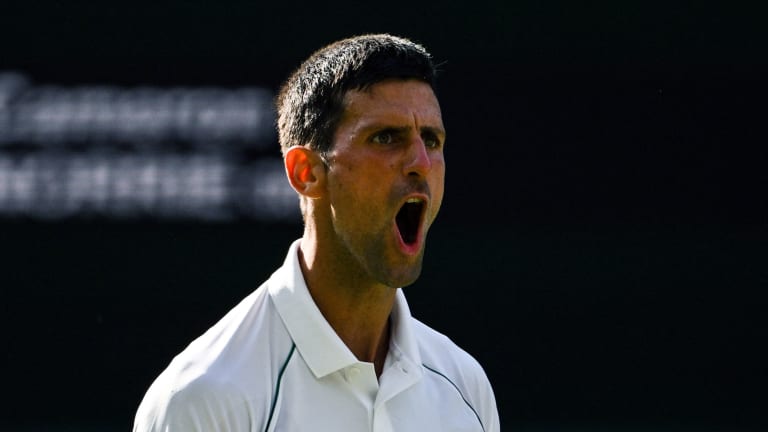Wimbledon
Novak Djokovic's unsurpassed ability to absorb the opposition's best shots and ask deeper questions leads to eighth Wimbledon final appearance
By Jul 08, 2022Wimbledon
Darren Cahill: Jannik Sinner watches more Carlos Alcaraz matches than he does with any other player
By Jul 14, 2025Wimbledon
Jannik Sinner reignites Carlos Alcaraz rivalry with Wimbledon victory
By Jul 14, 2025Wimbledon
Jannik Sinner reversed his usual pattern against Carlos Alcaraz. It won him Wimbledon
By Jul 14, 2025Wimbledon
Veronika Kudermetova and Elise Mertens win women's doubles title at Wimbledon
By Jul 13, 2025Wimbledon
Joy to the World: What Carlos Alcaraz has, and what we are enjoying
By Jul 13, 2025Wimbledon
Iga Swiatek keeps surprising herself after Wimbledon title caps "surreal" turnaround on grass
By Jul 12, 2025Wimbledon
Iga Swiatek wins first Wimbledon, sixth Grand Slam title with 6-0, 6-0 rout of Amanda Anisimova
By Jul 12, 2025Wimbledon
Wimbledon men's final preview: Will Carlos Alcaraz, Jannik Sinner share another epic?
By Jul 12, 2025Wimbledon
Julian Cash, Lloyd Glasspool become first all-British pair to win Wimbledon men's doubles title since 1936
By Jul 12, 2025Novak Djokovic's unsurpassed ability to absorb the opposition's best shots and ask deeper questions leads to eighth Wimbledon final appearance
After dropping the opening set to Cameron Norrie Friday, the 20-time major champion turned the pair's semifinal on its head by stepping up on serve and exposing the Brit's limitations.
Published Jul 08, 2022
Advertising
Advertising

Djokovic is aiming to clinch a four-peat at the grass-court major.
© AFP via Getty Images